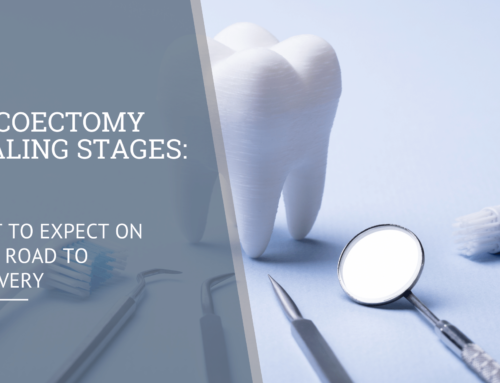If you’ve recently undergone or are considering an apicoectomy, you’re likely curious about the healing process and how long it will take to recover fully. An apicoectomy, also known as root-end surgery, is a specialized dental procedure aimed at removing infection from the root tip and surrounding tissue of a tooth. It’s often the next step if a traditional root canal treatment doesn’t heal as expected. Let’s break down the apicoectomy healing time and offer some tips to help you navigate your recovery period with ease.
What Is an Apicoectomy?
Before diving into the healing process, it’s helpful to understand what an apicoectomy entails. This procedure is typically recommended when an infection persists or recurs at the tip of the tooth’s root even after root canal therapy. During an apicoectomy, an endodontist (a dentist specializing in treating the inside of the tooth) will make a small incision in the gum to expose the bone and remove any infected tissue, along with the very tip of the root. A small filling is then placed to seal the end of the root canal, and the gum is sutured back in place.
Apicoectomy Healing Time: What to Expect
The healing process following an apicoectomy can vary from person to person, but there are general timelines you can expect. Here’s a breakdown of what to anticipate:
Immediate Post-Procedure
Right after the procedure, it’s normal to experience some swelling and discomfort for the first 2 to 3 days. Your endodontist will likely prescribe pain medication to manage any discomfort, and you might be advised to use an ice pack to help reduce swelling.
The First Week
During the first week, you’ll notice a significant improvement in symptoms. It’s important to follow your endodontist’s post-operative care instructions closely during this time to ensure proper healing. This usually includes avoiding strenuous activity, not disturbing the surgical site, and sticking to soft foods to prevent any irritation.
Two to Four Weeks After Surgery
By this time, most of the swelling and discomfort should have subsided. You may still have some minor bruising, but this is normal and will fade. It’s crucial to maintain good oral hygiene during this period to avoid infection, but be gentle around the surgical site.
Full Healing
Complete healing and bone regeneration at the surgery site can take 3 to 6 months. However, you should be able to return to your regular daily activities long before this, typically within a week or two after the procedure. Your endodontist will schedule follow-up appointments to monitor your healing and ensure the infection has been successfully eradicated.
Tips for a Smooth Recovery
- Follow your endodontist’s instructions: This can’t be emphasized enough. Adhering to the provided guidelines will help you heal faster and more comfortably.
- Eat soft foods: To avoid irritation, stick to soft, nutritious foods that require minimal chewing in the days following your procedure.
- Keep it clean: Maintain good oral hygiene by gently brushing and flossing your teeth, avoiding the surgical area until it has healed sufficiently.
- Rest: Give your body the time it needs to heal by avoiding vigorous exercise and activities in the first few days post-surgery.
Final Thoughts
While the thought of undergoing an apicoectomy might seem daunting, understanding the healing process can help ease any anxieties. Remember, an apicoectomy is often the final step in saving a tooth from extraction, and with proper care and a little patience, you can expect a successful recovery. If you have any concerns or questions about your healing process, don’t hesitate to reach out to your endodontist. They’re there to help you through your recovery and ensure the best outcome for your dental health.





Leave A Comment